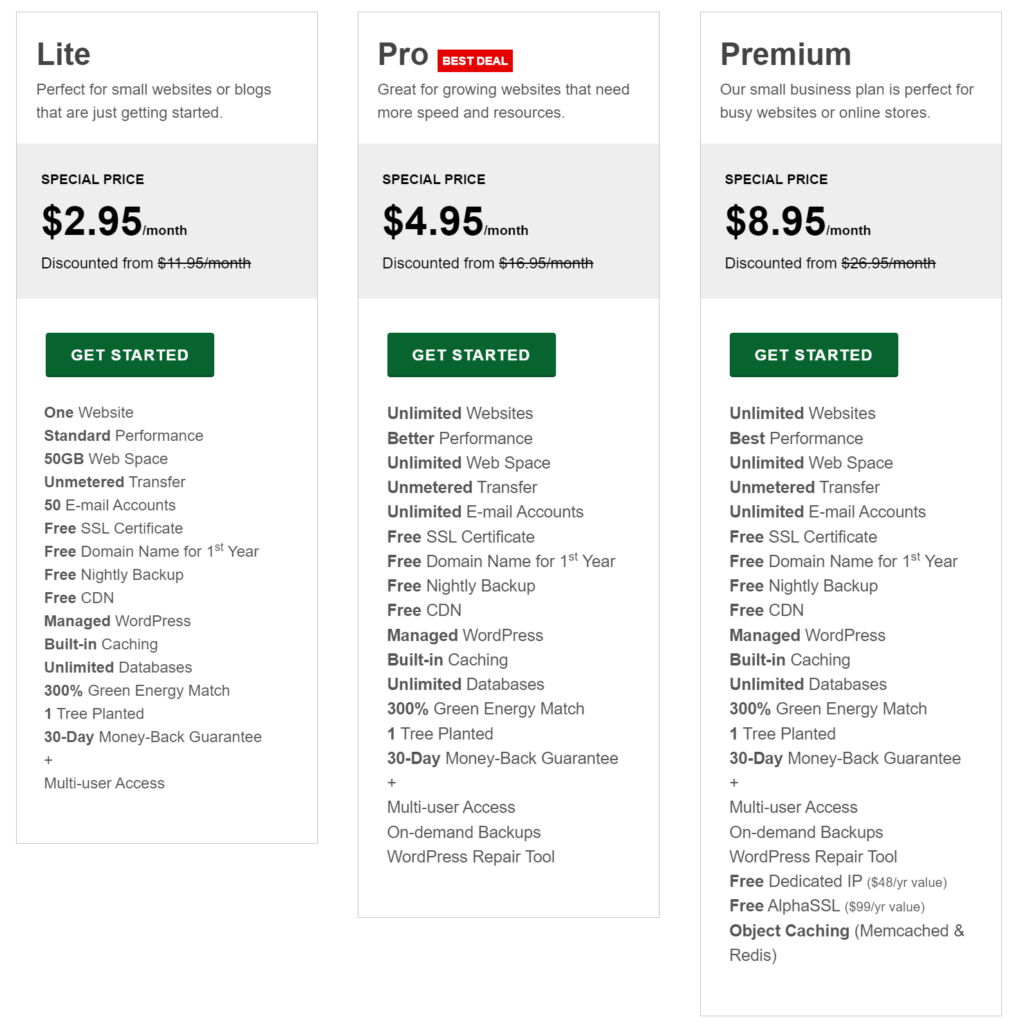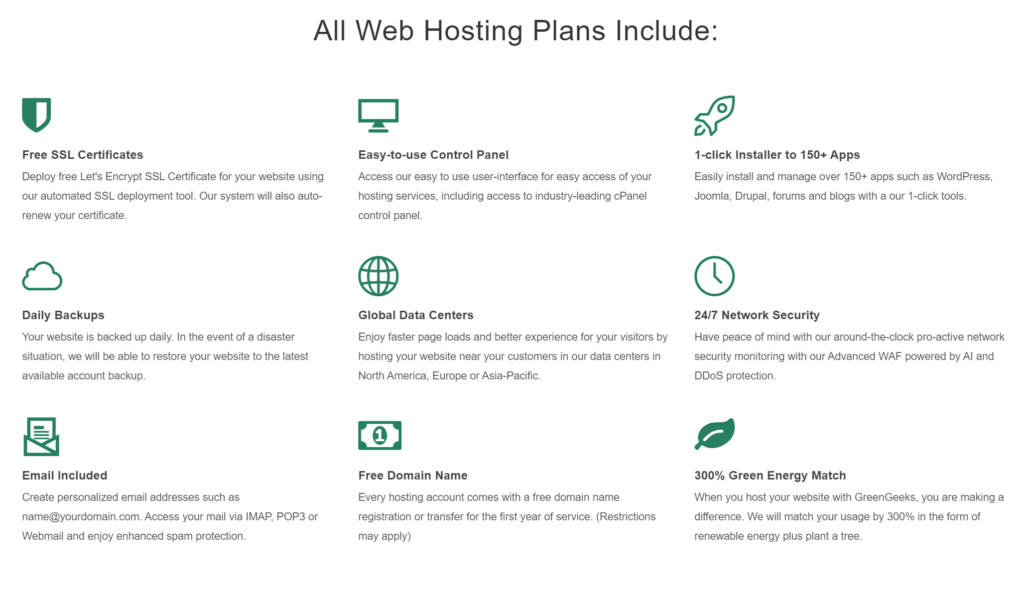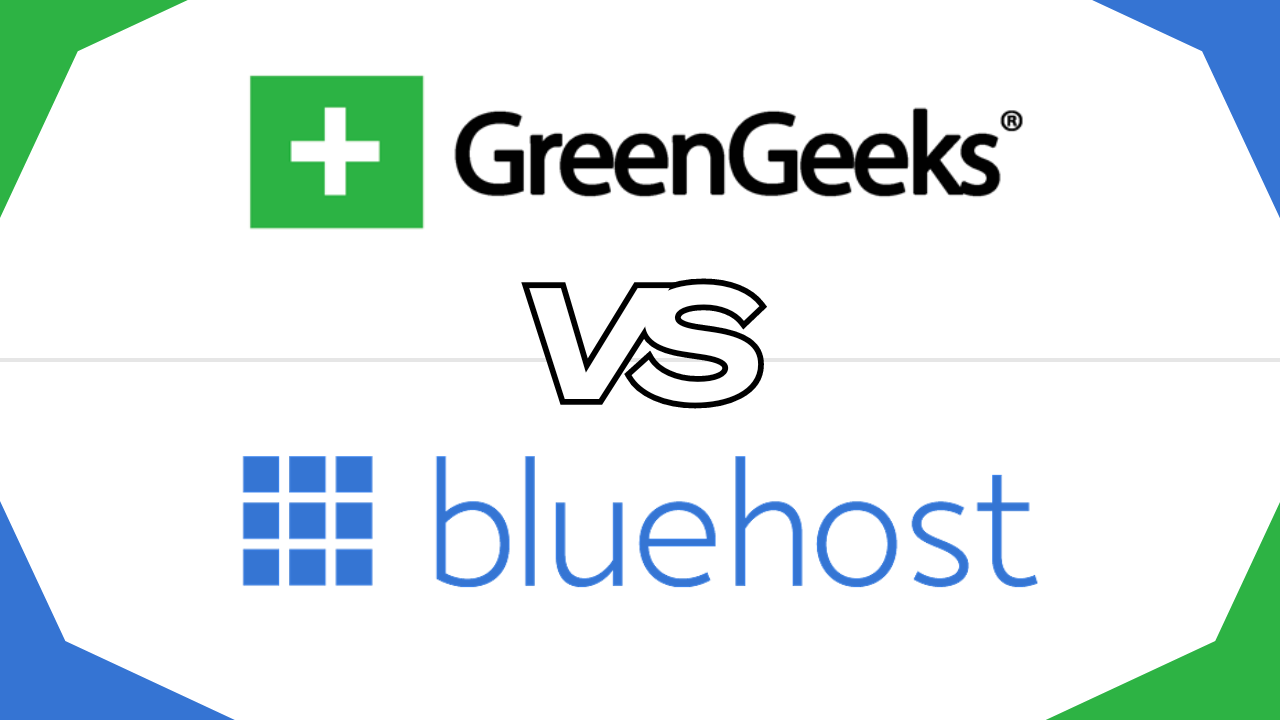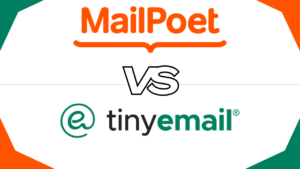
Choosing the right web hosting provider can be a daunting task, especially when weighing options like GreenGeeks vs Bluehost.
Both hosting services have carved out significant niches in the hosting world, each with its unique features and benefits.
In this comprehensive blog post, we delve into a detailed comparison of GreenGeeks and Bluehost, examining various aspects such as pricing, ease of use, features, and security. Whether you’re a small business owner, a blogger, or just starting with your first website, understanding these differences is crucial in making an informed decision that aligns with your hosting needs. Let’s explore what each of these web hosting giants has to offer.
Table of Contents
Quick Comparison: GreenGeeks vs Bluehost
GreenGeeks and Bluehost, two titans in the web hosting arena, offer distinct experiences tailored to diverse user needs.
GreenGeeks champions eco-friendly hosting, merging robust security features like real-time scanning and automatic backups with a commitment to renewable energy. This makes it a prime choice for environmentally conscious users.
Bluehost, celebrated for its WordPress integration and user-friendly approach, is a haven for beginners and WordPress enthusiasts alike. It combines affordable pricing with reliable performance, appealing to a broad user base. The decision between GreenGeeks and Bluehost hinges on individual priorities, be it environmental responsibility, WordPress optimization, or a balance of features and cost.

Photo by Brad Neathery
Pricing Structure: GreenGeeks vs Bluehost
When considering the pricing structure of GreenGeeks vs Bluehost, it’s crucial to understand the value offered by each in relation to their costs.
GreenGeeks, known for its eco-friendly hosting solutions, offers a range of plans, starting with its basic tier suitable for small websites or blogs. Their pricing is competitive, especially considering their commitment to renewable energy. Typically, their plans begin at a lower introductory price, which increases upon renewal. This is a common practice in the hosting industry, so it’s essential to consider the long-term costs.
On the other hand, Bluehost, a household name in the hosting world, also provides a variety of pricing options. They are often recognized for their budget-friendly initial offers, making them an attractive choice for new website owners. However, similar to GreenGeeks, Bluehost’s renewal prices see a significant hike after the introductory period. It’s important to note that both GreenGeeks and Bluehost offer different tiers of hosting services – from basic shared hosting to more advanced options like VPS and dedicated hosting, each tier with its specific pricing model.
Understanding the pricing structure of GreenGeeks vs Bluehost requires a close look at your long-term budget and hosting needs. While both offer competitive introductory prices, the key is to weigh the cost against the features and services they provide, ensuring you get the best value for your investment.
GreenGeeks Pricing

GreenGeeks offers an appealing range of pricing plans, catering to various hosting needs. Their most basic plan, the “Lite” option, starts at $2.95 per month, ideal for small websites or blogs. This plan includes essential features like one-click WordPress install, free SSL certificate, and unlimited web space.
For more advanced users, the “Pro” plan at $4.95 per month offers unlimited websites and higher performance. The premium “Premium” plan is priced at $8.95 per month, including dedicated IP and premium support. It’s important to note that these are introductory prices, which increase upon renewal. GreenGeeks stands out with its eco-friendly approach, making it a cost-effective choice for environmentally conscious users seeking reliable hosting solutions.
Bluehost Pricing

Bluehost offers a range of affordable hosting plans, making it a popular choice for individuals and small businesses. The Basic plan, ideal for single websites, starts at just $2.95 per month, offering 10 GB SSD storage and a free SSL certificate, perfect for those just starting out.
For more flexibility, The Choice Plus plan, at $5.45 per month, includes 3 websites and 40 GB SSD storage, plus a Free CDN. The Online Store plan is Great for all online selling, offering 40 GB SSD Storage and Free Domain perfect for online selling,
The Online Store plan starts at just $9.95 per month, For users needing enhanced performance, the Pro plan at $13.95 per month offers optimized CPU resources and a 100 GB SSD Storage. These competitive prices make Bluehost a go-to for cost-effective, reliable web hosting solutions, catering to a wide range of needs from basic blogs to more resource-intensive websites.
Ease of Use: Which one is better for you?

Photo by Glenn Carstens
When comparing the ease of use between GreenGeeks and Bluehost, both web hosting services offer user-friendly experiences, but with some distinctions.
GreenGeeks prides itself on a straightforward and intuitive interface. New users can easily navigate through their account setup and website management. Their control panel, equipped with various tools and a one-click WordPress installation, is designed for simplicity and efficiency. This makes GreenGeeks an excellent choice for beginners or those who prefer a no-fuss approach to web hosting.
On the flip side, Bluehost is renowned for its seamless integration with WordPress, making it a favorite among WordPress users. The Bluehost dashboard is well-organized, providing users easy access to manage their hosting, domains, and emails. What sets Bluehost apart is its customization capabilities and scalability, which caters well to both beginners and experienced users. Their guided onboarding process is particularly helpful for new website owners, simplifying the initial setup.
Features: GreenGeeks vs Bluehost

Photo by Carlos Muza
In the battle of features between GreenGeeks vs Bluehost, both hosting services bring their unique strengths to the table. GreenGeeks, recognized for its environmentally friendly hosting, offers a range of features that are particularly appealing to eco-conscious users. Their plans include unlimited web space, data transfer, and a free domain name for the first year. Additionally, they provide free nightly backups, an SSL certificate, and a free CDN service, ensuring both security and speed.

Bluehost, on the other hand, is often praised for its comprehensive feature set, especially for WordPress websites. It offers a one-click WordPress install, a user-friendly cPanel for easy management, and automatic WordPress updates. Bluehost also includes free SSL certificates and provides a free domain for the first year. A standout feature is their customized WordPress-centric dashboard which enhances the user experience for managing WordPress sites.

Both GreenGeeks and Bluehost offer 24/7 customer support, which is a crucial feature for any web hosting service. In terms of scalability, both hosts provide a range of plans, from basic shared hosting to more advanced options like VPS and dedicated hosting, accommodating websites as they grow.
In conclusion, when comparing the features of GreenGeeks vs Bluehost, the choice depends on individual needs and preferences. GreenGeeks is an excellent option for those prioritizing eco-friendly hosting with essential features, while Bluehost is a more versatile choice, particularly suited for WordPress users looking for a feature-rich, scalable hosting solution.
Key Differences
When evaluating GreenGeeks vs Bluehost, several key differences help distinguish these two popular hosting services:
Environmental Commitment: GreenGeeks stands out with its strong commitment to the environment. It’s one of the few web hosting companies that offer eco-friendly hosting solutions. They invest in wind energy credits to offset their carbon footprint, making them a go-to choice for environmentally conscious users.
Performance and Speed: Bluehost often has an edge in performance metrics, offering slightly faster loading times and server responses. This can be particularly important for websites where speed is a critical factor for user experience and SEO.
Pricing Model: While both services offer competitive introductory prices, GreenGeeks tends to have a higher renewal rate compared to Bluehost. This pricing difference is crucial for long-term budget planning.
WordPress Integration: Bluehost is a WordPress-recommended host, providing a seamless WordPress integration. This makes it a preferred option for users seeking optimized WordPress hosting with features like one-click installs and automatic updates.
User Interface: GreenGeeks offers a simpler, more straightforward user interface, which is ideal for beginners. Bluehost, while still user-friendly, provides a more feature-rich control panel suited for users who may require more advanced functionalities.
Customization Options: Bluehost provides more scalability and customization options, making it suitable for websites that anticipate growth or have specific hosting needs. GreenGeeks, while scalable, is more focused on providing a streamlined, eco-friendly hosting experience.
Security Features: Both offer robust security features, but Bluehost has a slight edge with more comprehensive security options like CodeGuard Basic and SiteLock, which are important for users who prioritize advanced security measures.
In summary, the key differences in the GreenGeeks vs Bluehost comparison revolve around environmental impact, performance, pricing structures, WordPress integration, user interfaces, customization options, and security features. Understanding these differences is essential in choosing the service for your business hosting needs.
Pros & Cons
Understanding the advantages and drawbacks of each hosting service is crucial in making an informed decision.
In the GreenGeeks vs Bluehost comparison, GreenGeeks stands out with its eco-friendly hosting, offering excellent uptime and responsive support, but it falls short with higher renewal rates and limited server locations.
Bluehost, on the other hand, is celebrated for its WordPress integration and user-friendliness, alongside competitive pricing. However, it also faces challenges with higher renewal costs and occasional inconsistencies in site speed. Each service has its unique strengths and weaknesses, making the choice dependent on individual needs and values, whether it’s environmental responsibility or WordPress optimization.
GreenGeeks Pros:
Eco-Friendly Hosting: GreenGeeks is a leader in environmentally friendly hosting, offsetting its carbon footprint by 300% in renewable energy credits.
Solid Uptime: They offer impressive uptime rates, ensuring that websites are consistently accessible to users.
Customer Support: GreenGeeks provides responsive, 24/7 customer support, which is beneficial for users needing assistance.
Free Nightly Backup: This feature adds an extra layer of security for your website data.
GreenGeeks Cons:
Higher Renewal Rates: After the introductory period, GreenGeeks’ renewal rates are relatively higher.
Limited Server Locations: They have fewer data centers, which might affect site speed for users located far from their servers.
Setup Fee for Monthly Billing: If you opt for monthly payments, there’s a setup fee, which isn’t ideal for those not committing to a longer-term plan.
Bluehost Pros:
Affordability: Offers a range of budget-friendly plans, making it a great choice for individuals and small businesses.
WordPress-Centric Hosting: Strong WordPress integration with features like one-click install and the WordPress-endorsed hosting provider.
Free Domain: Includes a free domain name for the first year, reducing initial costs.
Ease of Use: Known for its user-friendly interface, making website management straightforward for beginners.
Good Storage Options: Even the basic plans offer generous storage limits.
Bluehost Cons:
Variable Performance: Some users report variability in site speed and uptime compared to SiteGround.
Upselling Tactics: Users might experience frequent prompts to purchase add-ons or upgrade their plans.
Support Quality: While support is available 24/7, the quality and response times can be inconsistent compared to SiteGround.
Alternatives
While GreenGeeks and Bluehost are popular choices for web hosting, there are several other noteworthy alternatives in the market. Each offers unique features and benefits that might better suit specific hosting needs.

- Known for its budget-friendly plans, HostGator is a great option for beginners. It offers a mix of reliability and ease of use, with features like one-click installations and a user-friendly control panel.
- Pros: Affordable pricing, user-friendly for beginners, offers a variety of hosting plans.
- Cons: Performance can be inconsistent, but customer support response times vary.
To learn more about HostGator, we recommend that you read this DreamHost vs HostGator

- Ideal for WordPress users looking for premium managed hosting. WP Engine specializes in high-performance WordPress hosting with excellent speed, security, and customer support, though at a higher price point.
- Pros: High-quality, managed WordPress hosting, excellent speed and security.
- Cons: Higher cost, exclusively for WordPress, limited to certain plugins and themes.
To learn more about WP Engine, we recommend that you read this SiteGround vs WP Engine

- SiteGround stands out in the web hosting market for its exceptional customer support and high-performance hosting services. Officially recommended by WordPress, it offers features like free daily backups, SSL certificates, and cloud hosting solutions. Although slightly pricier, SiteGround is ideal for those who prioritize reliable support and robust hosting performance.
To learn more about SiteGround, we recommend that you read this SiteGround vs Bluehost
Security and Reliability

Photo by Privecstasy
When it comes to web hosting, security and reliability are paramount. In comparing GreenGeeks vs Bluehost on these aspects, both offer robust features to ensure your website’s safety and uptime.
GreenGeeks places a strong emphasis on security with features like real-time security scanning, automatic nightly data backups, and proactive server monitoring. These measures help in quickly identifying and addressing any potential security threats. In terms of reliability, GreenGeeks boasts an impressive 99.9% uptime, ensuring that websites are consistently accessible to users. Their use of SSD storage also contributes to faster and more reliable hosting performance.
Bluehost, on the other hand, provides a comprehensive approach to security, including free SSL certificates for all plans, which is essential for website encryption. They also offer features like SiteLock for malware detection and removal, and CodeGuard for regular backups, adding an extra layer of data protection. In terms of uptime, Bluehost maintains a strong track record, with industry-standard levels of reliability, ensuring minimal downtime for websites.
GreenGeeks: Security
GreenGeeks offers real-time security scanning, a crucial feature that actively detects and mitigates threats, ensuring robust, ongoing website protection.
GreenGeeks enhances safety with automatic nightly data backups, ensuring critical website information is consistently secured and easily recoverable if needed.
GreenGeeks employs proactive server monitoring, vigilantly maintaining operational integrity and swiftly addressing issues to ensure optimal website performance and uptime.
Bluehost: Security
Security Measures: Bluehost provides basic security features like free SSL certificates and options for more advanced security solutions such as SiteLock at an additional cost.
Server Reliability: Implements standard industry practices for server reliability, including resource protection on shared servers.
Uptime Performance: Generally offers good uptime, ensuring website availability, but some users report variations.
Conclusion: Who is the Winner?
GreenGeeks vs Bluehost
GreenGeeks excels with its eco-friendly hosting solutions, making it an ideal choice for environmentally conscious users. Its real-time security scanning, automatic nightly backups, and proactive server monitoring ensure robust security and reliability. Coupled with a strong commitment to renewable energy, it’s a top pick for those who prioritize green web hosting.
Bluehost, on the other hand, stands out with its user-friendly interface, making it perfect for beginners, especially those using WordPress. It offers a comprehensive range of security features and reliable uptime, catering well to a broader audience needing versatility and scalability.
In conclusion, if your priority is eco-friendly hosting with strong security features, GreenGeeks is the way to go. However, if you’re looking for an easy-to-use, WordPress-optimized service with a balance of features and performance, Bluehost is an excellent choice. The winner ultimately depends on what factors are most important for your specific web hosting requirements.




